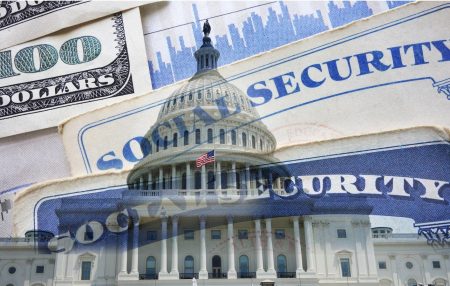Many people with student loan debt face a tough decision: if you only have so much money available at the end of each month to save and invest, should you contribute those dollars to a savings or investment account…
…or are you better off using that money to pay down your debts as quickly as possible?
The standard answer was that it depended on the interest rates at play. The higher the interest rate on your debt, the more it likely made sense to pay off that balance as quickly as possible.
If the potential return on your savings or investments was higher than the interest rate on your debt, then that suggested you should focus on savings rather than paying off debt faster.
But thanks to a piece of legislation that was passed in late 2022 and largely went into effect in 2023, those with student loan debt no longer have to choose between “paying down debt” and “saving for retirement.”
There’s a new answer to consider if you want to have your (financial) cake and eat it, too.
What To Know About The SECURE 2.0 Act If You Have Student Debt
Congress passed the SECURE 2.0 Act in December 2022, and President Biden signed it into law before the end of the year.
Techinically, the SECURE 2.0 Act was a spending bill — but in practice, it created new rules and made changes to old laws that will impact financial planning for millions of people.
The biggest highlight for student loan borrowers might be the fact that you can use your income to pay down your student loans while still getting a matching contribution to your retirement plan for your employer — even if you’re not actually contributing to the plan because you used that money toward your loan balances.
Here’s how it works:
You tell your employer you are using the money you otherwise would contribute to an employer-sponsored retirement plan like a 401(k) to pay down your loans. The SECURE 2.0 Act says your employer still needs to provide their normal matching contribution into your 401(k).
It’s that simple.
Let’s say you earn $150,000. Normally, you’d put in 3 percent of your salary ($4,500 in this example) to your 401(k) because your employer offers a 3 percent match.
You know it’s important to save for retirement, and that match is free money on the table. But you still have student loans to repay, and you want them gone as quickly as possible.
So you take the $4,500 you otherwise would have contributed to your employer’s retirement plan, and use that money to pay down your student loan balances instead.
You then report this to your employer, and thanks to the SECURE 2.0 Act, they still need to provide their matching contribution to the plan.
In other words, they still need to contribute $4,500 to your plan even though you used your $4,500 to pay down student loans.
How To Start Saving For Retirement, Even While You Still Have Debt To Repay
You might think that such a beneficial rule would come with a lot of complex paperwork or red tape to work through, or only apply to a limited number of people.
Surprisingly, considering this is the government we’re talking about, there’s no complicated process to get started with this.
Student loan paperwork is typically a nightmare, but in this case… your word is good enough.
The SECURE 2.0 Act does not require that you have proof that you took what would have been your 401(k) contribution and applied it to your student loan balance instead.
Obviously, my recommendation is to (1) be honest, and (2) maintain your own proof that you took what would have been your 3 percent contribution to your employer’s retirement plan and applied it to student loans.
There’s nothing to say that, in the future, a more stringent system will be put into place that does require proof. Plus, if you’re ever audited by the IRS, that process will be a little less stressful if you know you have all your paperwork ready to show you played it by the book.
Other Ways You Might Benefit From The SECURE 2.0 Act
Having your employer help fund your retirement while you put more dollars toward paying off debt is one of my favorite new financial planning hacks that the SECURE 2.0 Act introduced.
But there are a few other little tweaks you can make with your retirement accounts now, thanks to this piece of legislation.
Here are some to keep in mind, depending on where you are in your financial planning journey:
- Choose the taxability of your employer’s contributions: You now have the power to choose where the money your employer contributes to your retirement plan. You can have them contribute into the traditional tax-deferred plan or a Roth. This adds flexibility, but it could also increase your taxable income.
- Put in even larger catch-up contributions to retirement plans: If you’re 60 to 63 years old, you may be eligible to contribute up to an additional $10,000 (growing by inflation) or 150% of the regular catch-up amount, whichever is greater, to your accounts starting in 2025. That’s on top of the normal limits, which is great for savers who got a late start and need to make the most of their income from their remaining working years before retirement.
- Avoid RMDs on Roth 401(k)s: There is no longer a requirement to distribute from Roth 401(k)s at certain ages. If you don’t contribute to a Roth 401(k) right now, it’s worth considering to diversify how your income is taxed (now, with the Roth, versus later, with traditional plans).
It’s great to know what the possibilities are — and it’s even better if you’re working with a professional to put this information in the specific context of your unique situation.
If you haven’t yet, consider talking with a fee-only financial planner who can help make sure you optimize your financial situation so you can grow wealth and achieve your biggest money goals.
Read the full article here









